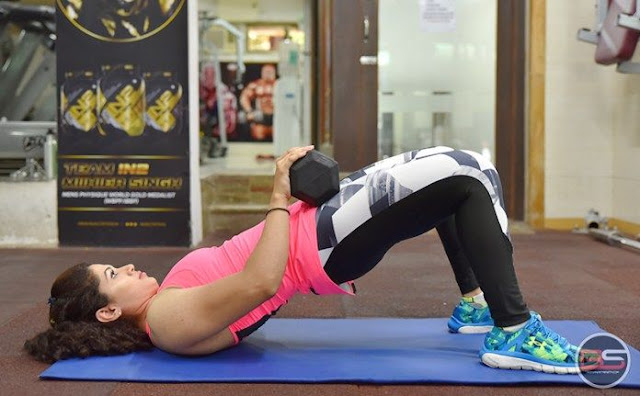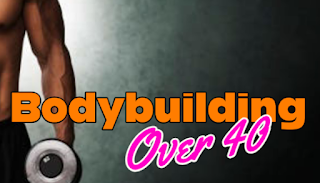What are Dumbbell Hip Thrusts?
The dumbbell hip thrust exercise is a great way to build muscle in your legs and butt. It is a compound movement that activates multiple muscles in the core, glutes, hamstrings and lower back making it great for bodybuilding and strength gains.
You can also perform hip thrusts with a barbell or just body weight. It is always recommended that you use some kind of extra resistance if possible. It will make the exercise more difficult, give you better results and allow for progressive overload.
Step by Step Guide on Doing a Dumbbell Hip Thrust
The hip thrust is a great exercise for building glutes. It is also a good way to warm up the lower back muscles before performing deadlifts or squats. The following steps will guide you on how to dumbbell hip thrust:
- Grab a flat bench and a dumbbell. Start with a light weight and pyramid up as you progress.
- Sit in front of the bench with your legs bent, feet at shoulder-width and your upper back resting against the bench.
- Place the dumbbell onto your hips, tilt your head forward and brace your legs ready to thrust the dumbbell upwards.
- Take a deep breath, and upon exhale, thrust the dumbbell upwards on your hips with an explosive movement.
- At the top, hold the position for 3 seconds and squeeze the glutes before slowly lowering your hips. When your glutes are about an inch away from the ground, thrust upwards again.
- Repeat for the required number of sets and reps.
Tips for a better hip thrust
Muscles worked with a hip thrust
A hip thrust is a very effective exercise that has the potential to work out all of the muscles in your lower body.
The glutes, hamstrings, and quads are all targeted with this move. The adductor muscles are also targeted with this move as they help to stabilize the pelvis and keep it from shifting around.
The hip thrust is a great way to build strength and size in your glutes. It is often used as a supplement to other exercises so that you can target these muscles more specifically.
It is important for you to control your core when performing this exercise so that you can protect your back from injury.
The hip thrust is a compound movement that targets the glutes, hamstrings, and quads. It also targets the adductor muscles as they contribute to stabilizing the pelvis and make it easier to do this exercise correctly.
Negatives of the hip thrust
Hip thrusts can give great results when performed correctly but if you use loose form or do not warm-up, you can cause injury to your spine or the muscles in your lower back.
To avoid back injury, make sure that you spend at least ten minutes warming up your core, hamstrings and back. Start on a rowing machine or treadmill just to warm the body up and get the blood pumping.
After you have warmed the body up, perform some dynamic stretching, especially of the hamstrings and lower back. When you have finished stretching, perform a couple of bodyweight sets just to get some blood in the muscles.
If you follow the advice above and make sure that you are using strict form, you should not have any negative effects from hip thrusts.
3 Awesome Alternativesto hip thrusts with a dumbbell
The dumbbell hip thrust is a great exercise for strengthening the glutes, but it has its limitations. One of the main limitations of the dumbbell hip thrust is that it's difficult to use progressive resistance. The weight of the dumbbells can be increased, but this becomes cumbersome and time-consuming.
Another limitation is that it's difficult to perform a true maximal contraction with this exercise because using heavy weights can lead to muscle strain in the lower back and hamstrings. In contrast, many alternative exercises are more effective for increasing the strength and size of these muscles.
1 - The barbell hip thrust
The barbell hip thrust is the more popular variation of the dumbbell hip thrust. It is exactly the same as a dumbbell hp thrust but your rest a barbell bar across your hips instead of a dumbbell. This allows for heavier resistance.
One of the main advantages of a barbell hip thrust is that you can perform it in a power cage or on a smith machine. This makes it easier to load the weight and safer to perform the movement. You can also raise or lower the bar to adjust your starting position or make the move more difficult.
2 - The leg extension hip thrust
The leg extension hip thrust is not as common as the barbell or dumbbell variation but is a great alternative. You will need to have a dedicated leg extension machine in your gym with adjustable pads.
The movement is the same as any other hip thrust exercise but you perform it by thrusting the leg pad of the leg extension machine up and down instead of a free weight.
It can take a bit of tinkering to find the best position and settings to use but once you have it sorted, you can perform pyramid sets and drop sets with ease.
3 - The stiff leg deadlift
The stiff leg deadlift is the next best alternative to a hip thrust. It also targets the hamstrings, lower back and glutes. Though it is not as effective at targeting the anterior hip raisers, this move will contract and strengthen the gluteal muscles more than a hip thrust.
It also works the deep glute muscles which are more difficult to target with a hip thrust. The stiff leg deadlift is similar to a traditional deadlift but performed without flexing the leg at the knee. This means that you can not use as much weight but it also means that your hamstrings, glutes and lower back are doing all of the work.
5 Reasons Why You Should Include a Dumbbell Hip Thrust in Your Workout Routine
The dumbbell hip thrust is a great way to increase your core strength and get the most out of your workouts. Here are the top five reasons why you should include this exercise in your routine:
1) It will help you build muscle in your glutes, hamstrings, and quads- all muscles that are important for a strong core.
2) It will improve your balance so that you can better control yourself during other exercises.
3) It will help you get rid of lower back pain with its deep stretch on the spine.
4) It improves postural alignment by strengthening the muscles in your core, which helps prevent injuries to joints and bones.
5) You can do it anywhere- at home or at the gym!









